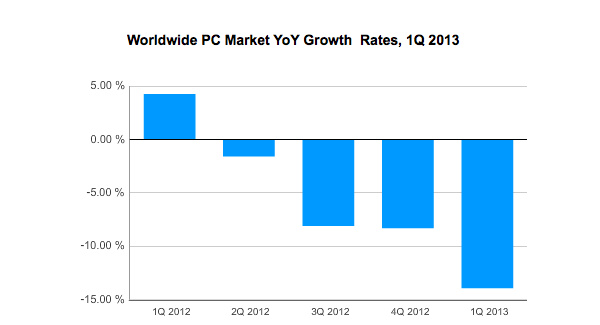
The industry temporarily got a boost this year as corporations and governments used the end of life for Windows XP as an excuse to purchase new Windows 7 or Windows 8 PCs, but a few companies have already claimed that that boost is coming to an end, and soon.
Most concerns come from the emerging markets including China, where demand is already falling again. The industry has been averaging at least 3 percent declines year-over-year since 2010 but saw flat shipments for the quarter ended June 30th.
Other concerns are due to PC's main rivals, tablets and now Chromebooks, the former of which has been seeing triple-digit growth (up until this quarter) and the latter of which remains a very popular item, at least within certain niches. The most recent quarter, in which tablet shipments actually fell, does show there is still demand for notebooks, as long as they are cheap and portable but how long that lasts is also unclear, especially if tablets keep moving towards convertible options that basically turns them into laptops.
Source:
Reuters
Written by: Andre Yoskowitz @ 13 Jul 2014 13:13

